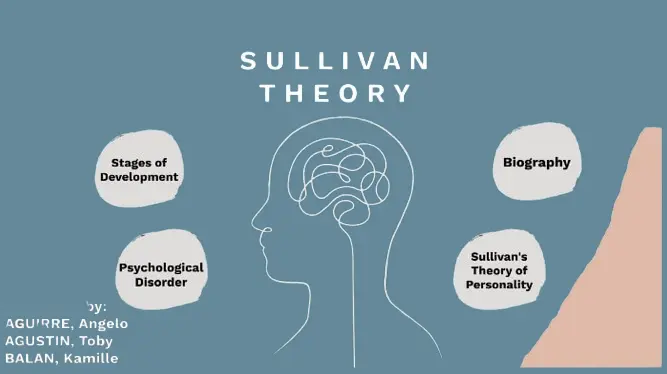Introduction – Why the Mind Races at Night
Many people find that their thoughts accelerate precisely when the world quiets down. You lie in bed, ready for rest, yet your mind replays the day’s events, anticipates tomorrow’s tasks, or wanders through every possible “what if.” This phenomenon—overthinking before sleep—is one of the most common barriers to quality rest.

Overthinking at night is not merely an inconvenience; it’s a physiological and psychological response that can perpetuate insomnia, stress, and emotional fatigue. Understanding why it happens and how to interrupt the cycle is essential to improving sleep hygiene and overall well-being.
The Science Behind Nighttime Overthinking
From a neurobiological perspective, overthinking is linked to the prefrontal cortex, the region of the brain responsible for decision-making and problem-solving. During the day, external stimuli—work, conversations, tasks—keep the mind occupied. At night, when distractions fade, the brain continues its unfinished cognitive loops.
Additionally, stress hormones like cortisol and adrenaline remain elevated in individuals who experience chronic stress or anxiety. This physiological state keeps the brain alert even when the body is ready for rest.
Research from the Journal of Behavioral Sleep Medicine highlights that individuals with higher cognitive arousal before bed experience more sleep disturbances, longer sleep latency (the time it takes to fall asleep), and poorer sleep quality.
Common Triggers of Overthinking Before Sleep
While occasional overthinking is normal, frequent nighttime rumination often stems from identifiable triggers:
- Stress and Unresolved Concerns: Work pressures, financial worries, or relationship issues often surface at night when quiet magnifies their presence.
- Perfectionism: The habit of mentally revisiting tasks or replaying conversations can keep perfectionists in an endless loop of analysis.
- Technology Overuse: Blue light exposure and emotional stimulation from late-night scrolling keep the brain alert.
- Unstructured Evenings: A lack of winding-down routine confuses the brain about when it’s time to rest.
- Caffeine or Sugar Intake: Both elevate alertness and can trigger physical restlessness.
Recognizing these triggers is the first step toward addressing them effectively.
How Overthinking Affects Sleep Quality and Mental Health
Overthinking and poor sleep form a self-reinforcing cycle. The more you overthink, the harder it is to sleep—and the more sleep-deprived you become, the more prone you are to overthinking.
Chronic overthinking before bed has been associated with:
- Increased cortisol levels, delaying the onset of deep sleep.
- Reduced REM cycles, impacting memory and emotional regulation.
- Higher anxiety and depressive symptoms, as shown in studies by the National Sleep Foundation.
- Decreased cognitive performance during the day.
Thus, managing mental activity at night is not just about comfort—it’s about preserving mental health and cognitive function.
Recognizing the Signs of Nighttime Overthinking
You may be caught in an overthinking loop if you experience:
- Difficulty “switching off” mentally despite physical tiredness
- Replay of past events or imagined scenarios
- Muscle tension, rapid heartbeat, or shallow breathing in bed
- Prolonged time before falling asleep (over 30 minutes)
- Morning fatigue despite adequate sleep opportunity
These indicators suggest heightened mental arousal—precisely what effective sleep hygiene practices aim to reduce.
Proven Techniques to Calm Your Mind Before Bed
The key to stopping overthinking is to shift the brain from analysis mode to relaxation mode. Here are evidence-based strategies:
1. Scheduled “Worry Time”
Set aside 15–20 minutes earlier in the evening to jot down concerns or to-do lists. According to cognitive-behavioral therapy (CBT) research, designating time for structured worry reduces intrusive thoughts later.
2. Cognitive Defusion
A technique from Acceptance and Commitment Therapy (ACT), cognitive defusion helps you detach from thoughts rather than fight them. Example: Instead of thinking “I’ll never finish tomorrow’s work,” rephrase it as “I’m having the thought that I may not finish tomorrow’s work.” This subtle shift weakens the thought’s emotional power.
3. Progressive Muscle Relaxation (PMR)
This method involves systematically tensing and relaxing muscle groups to release physical tension that often mirrors mental tension. Studies show PMR can significantly reduce sleep latency.
4. Visualization
Imagine a calm, safe environment—such as lying on a quiet beach or walking through a forest. Visualization engages sensory pathways that distract the brain from ruminative thought patterns.
How to Create a Night Routine to Prevent Overthinking
A consistent nighttime routine signals to your brain that it’s time to slow down. Professionals recommend structuring it like this:
- Digital detox: Turn off screens at least one hour before bed.
- Dim lighting: Reduce light intensity to trigger melatonin production.
- Mindful activity: Engage in a calm activity such as reading or light stretching.
- Sleep-friendly environment: Maintain a cool, dark, and quiet bedroom.
- Consistent bedtime: Going to bed and waking up at the same time regulates circadian rhythm.
Routine consistency retrains your nervous system to associate evening hours with relaxation rather than analysis.
Breathing and Mindfulness Exercises for Sleep
Mindfulness practices quiet the prefrontal cortex and activate the parasympathetic nervous system—the body’s relaxation response. Effective techniques include:
- 4-7-8 Breathing: Inhale for 4 seconds, hold for 7, exhale for 8. This method slows the heart rate and reduces anxiety.
- Body Scan Meditation: Mentally scan from head to toe, acknowledging tension and releasing it.
- Mindful Counting: Count backward slowly from 100 while focusing on your breath.
Studies published in Frontiers in Psychology confirm that mindfulness interventions improve sleep quality and reduce rumination.
Journaling and Thought-Dumping Methods
Writing thoughts down externalizes them—literally moving them from mind to paper. This simple act creates psychological distance and closure.
Try the following:
- Gratitude Journaling: Note three things you appreciated about your day.
- Unsent Letters: Write out frustrations or fears without the intention to send them.
- Mind Dumping: Rapidly list all worries before bed—then close the notebook as a symbolic gesture of release.
A 2018 study in the Journal of Experimental Psychology found that participants who journaled about future tasks fell asleep significantly faster.
Relaxation Practices to Help You Let Go of Stress
Incorporate calming rituals into your nightly routine:
- Warm showers or baths lower body temperature post-exit, promoting melatonin release.
- Aromatherapy with lavender or chamomile oils activates soothing brain pathways.
- Soft instrumental music or white noise masks environmental sounds and induces calm.
Combining sensory relaxation with cognitive control maximizes the chances of falling asleep quickly.
The Role of Lifestyle and Diet in Reducing Overthinking
The brain’s chemistry responds directly to diet, physical activity, and substance use:
- Reduce caffeine and nicotine after noon; both stimulate the nervous system.
- Limit alcohol, which disrupts REM sleep cycles.
- Eat magnesium-rich foods (almonds, spinach) and omega-3 fats (salmon, flaxseed) for brain calmness.
- Exercise regularly, but not within 2 hours of bedtime—morning workouts are best for stabilizing cortisol rhythms.
Cognitive-Behavioral Tips to Manage Racing Thoughts
Cognitive Behavioral Therapy for Insomnia (CBT-I) is one of the most effective approaches for overthinking-related insomnia. Core CBT-I principles include:
- Thought reframing: Replace catastrophic thoughts with realistic alternatives.
- Stimulus control: Use your bed only for sleep and intimacy to strengthen mental association with rest.
- Sleep restriction: Go to bed only when sleepy, not merely tired.
- Relaxation rehearsal: Practice calming techniques earlier in the evening.
Numerous clinical trials confirm CBT-I’s long-term benefits in reducing insomnia severity.
How to Train Your Mind for Restful Sleep
Think of sleep as a learned behavior. Training the mind to unwind involves consistency, not complexity. Over time, repeating relaxation behaviors before bed forms associative learning—the brain links them with safety and rest.
Tips to strengthen mental training:
- Keep a consistent bedtime journal of your progress.
- Use gentle affirmations such as “I deserve rest” or “My mind can rest now.”
- Celebrate small wins—falling asleep 10 minutes faster is progress.
When Overthinking Becomes Chronic – Seeking Help
If overthinking persists despite behavioral changes, it may signal generalized anxiety disorder (GAD), depression, or rumination disorder. Persistent sleep disruption can affect immunity, concentration, and mood regulation.
Consider consulting:
- A clinical psychologist for cognitive-behavioral therapy
- A psychiatrist for medication evaluation if anxiety is severe
- Sleep specialists to rule out insomnia or circadian rhythm disorders
Early intervention can prevent chronic mental health complications.
Final Thoughts – Reclaiming Your Peaceful Nights
Overthinking before sleep is a battle between the rational and the restless mind. Yet, with structure, self-awareness, and evidence-based techniques, it’s entirely possible to reclaim peaceful nights.
Remember: your mind’s goal at night isn’t to solve—it’s to settle. Creating a routine that signals safety and closure helps your body transition naturally from thought to rest. Over time, sleep becomes less of a struggle and more of a sanctuary.



